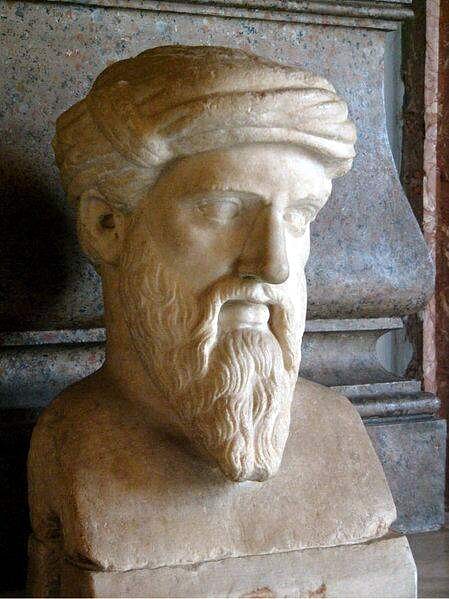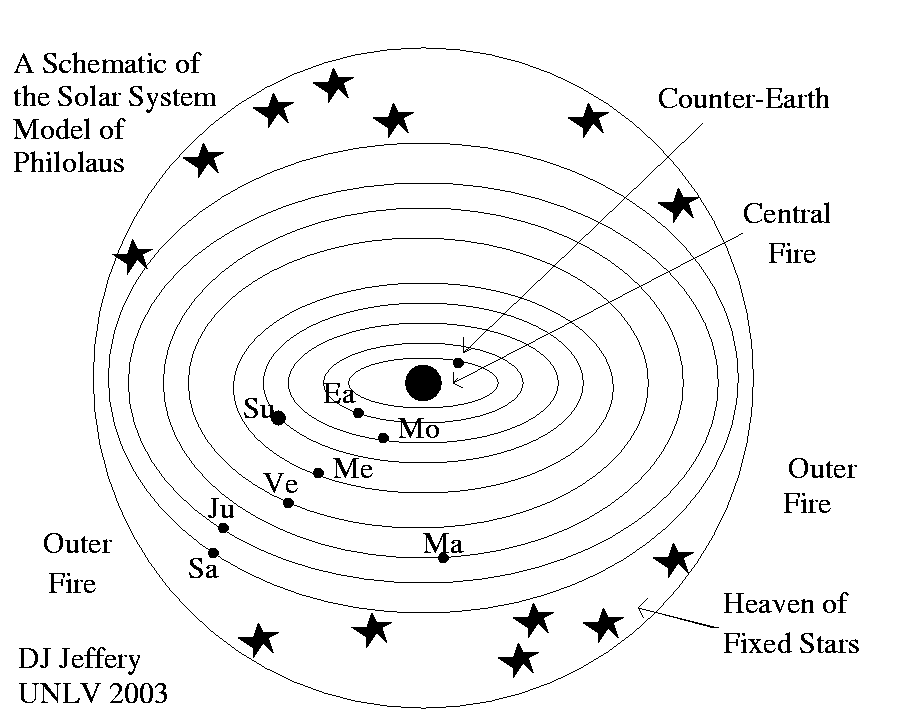Philolaus: A Visionary of the Ancient Greek Philosophical Landscape
The tapestry of ancient Greek philosophy is woven with the thoughts and doctrines of numerous intellectuals whose work has significantly shaped the contours of Western thought. Among these profound thinkers is Philolaus of Croton—a Pre-Socratic philosopher whose contributions laid foundational stones for both philosophical inquiry and scientific understanding. Through his revolutionary ideas and exploration of cosmology, Philolaus stands as a beacon of intellectual curiosity in antiquity.
Life and Background
Philolaus was born around 470 BCE in Croton, a city in Magna Graecia, present-day southern Italy. Croton was not only a hub of political and social activity, but it was also an epicenter of intellectual endeavor, thanks, in no small part, to the presence of the Pythagorean School, founded by the enigmatic Pythagoras. While very little is known about Philolaus's personal life, his affiliation with this school is well-documented. The punishment of the Pythagoreans, led by political rivals, eventually forced many members, including Philolaus, into exile. This exile played a crucial role in spreading their philosophical and scientific doctrines beyond the confines of Magna Graecia.
Philolaus eventually settled in Thebes, a thriving city of culture and scholarship, where his ideas flourished. His work reflected the rigor and mysticism typical of the Pythagorean tradition, yet Philolaus also distinguished himself by introducing transformative theories that diverged from his contemporaries.
Philolaus's Philosophical Contributions
Much of Philolaus's reputation as a philosopher stems from his unique approaches to understanding the cosmos and mathematics. He is credited with being one of the first to articulate that the universe is founded on numerical principles—a fundamental Pythagorean belief. However, his treatment of numbers went beyond mere abstraction; Philolaus proposed that numbers and numerical patterns are intrinsic to physical and metaphysical reality alike.
Numerical Foundations of the Universe
Philolaus built upon the Pythagorean notion that numbers are the essence of all things. He posited that the cosmos could be comprehended through harmonious numerical relationships, suggesting that these relationships were not arbitrarily imposed but were inherent to the structure and order of the universe. Unlike Pythagoras, who leaned heavily toward numerical mysticism, Philolaus applied this concept in seeking rational explanations for natural phenomena, thereby bridging mystical and empirical thinking.
His extension of these numerical ideas into cosmology was truly revolutionary. By conceiving of the cosmos as a well-ordered structure governed by numerical harmony, he set the stage for subsequent astronomical and philosophical inquiry.
Cosmological Insights
Philolaus's most compelling and perhaps audacious contribution was his vision of the cosmos. He challenged the prevailing geocentric model, which placed the Earth at the center of the universe. Instead, Philolaus suggested that a central fire—an undefined cosmic entity—occupied this pivotal position. According to Philolaus, the Earth, Sun, Moon, and planets revolved around this central fire. This proposition foreshadowed later heliocentric models and set the stage for future astronomical exploration.
The term "central fire" is open to interpretation, and scholars have long debated whether Philolaus envisioned a literal fiery body or if it was a symbol representing the unity and balance inherent in the universe. Despite these ambiguities, Philolaus's cosmos was an ordered one—a dynamic system in which celestial bodies moved in precise, predictable patterns reflecting the harmonious interplay of numerical relationships.
The Influence of Philolaus
The legacy of Philolaus is predominantly seen in the way his work influenced contemporaneous and later thinkers. His departure from orthodox Pythagorean thought marked an evolution in philosophical discourse, and his cosmological vision directly impacted astronomical theories that eventually culminated in the heliocentric models of Copernicus and others millennia later.
Philolaus's exploration of numbers as a conduit to understanding reality further underscored the shift toward empirical observation and rationalism. Philosophers and mathematicians alike found inspiration in his work, and his influence can be traced through the strands of philosophical inquiry that stretch far beyond his era.
However, it is essential to note that much of his work survives only in fragments and secondhand accounts. His sole attributed work, often referred to as "On Nature," alongside other writings, was eventually absorbed into the broader corpus of Pythagorean literature. Yet, even through fragmentary sources, the brilliance of Philolaus's mind shines through, continuously inviting reflection and study.
As we delve deeper into Philolaus's philosophy and the enduring impact of his theories, it becomes clear that his work transcends the boundaries of time—not just as a collection of abstract ideas, but as a catalyst for centuries of human inquiry. In the next segment, we will explore further the nuances of his thought and its enduring legacy in subsequent philosophical and scientific traditions.
The Harmony of Opposites: Understanding Philolaus's Doctrine
Philolaus's contributions to philosophy extended beyond his cosmological insights and into the realm of metaphysics, where he explored the nature of reality through a unique lens. A central theme in his philosophical inquiry was the harmony of opposites—a concept that underscores the intrinsic order and balance found in the universe. This doctrine was not merely an abstract principle but a reflection of the Pythagorean belief in harmony, proportion, and balance as fundamental forces.
Fundamentals of the Doctrine
Philolaus posited that everything in the universe is composed of two primary elements: the Limiters and the Unlimiteds. The Limiters were viewed as the defining, fixed principles that impose structure and order, while the Unlimiteds represented the amorphous, indefinite aspects requiring organization and form. It is through the interplay between these two that reality is crafted—a harmonious blend where order arises from chaos, and structure emerges from the formless.
The application of this doctrine extended beyond mere philosophical postulation. For Philolaus, everything from natural phenomena to musical harmony could be understood through this binary opposition. Musical scales, for instance, manifest harmony by balancing opposing forces within intervals, creating a unified whole that resonates with the listener. This tangible expression of harmony in music serves as an exemplar of the metaphysical principles Philolaus espoused.
The Impact on Science and Mathematics
The notion of harmony was not confined to philosophical speculation; it also deeply influenced scientific and mathematical progress. Philolaus believed that understanding numerical relationships in music could provide insights into the nature of the cosmos. This connection between music and cosmic order was emblematic of the Pythagorean School's efforts to merge mathematical precision with metaphysical inquiry.
Philolaus’s reflection on harmony and balance offered a philosophical framework that later influenced scientific methodologies. By proposing that the natural world—while appearing chaotic—could be understood through systematic observation and analysis, he laid the groundwork for the empirical methods that would blossom in later scientific traditions.
Moreover, Philolaus's influence on mathematics can be seen in the subsequent development of harmonic theory and ratio analysis—areas that have remained relevant throughout centuries of musical and mathematical innovation. These contributions underscore Philolaus’s role in steering philosophical discourse toward empirical methods grounded in numerical analysis.
Philolaus in Cultural and Historical Context
To fully appreciate Philolaus's work, it is essential to understand the cultural and historical context in which he lived. The 5th century BCE was a period of vibrant intellectual activity in the Greek world. It was an era that witnessed the burgeoning of new ideas and philosophical schools, each aiming to unravel the complexities of the natural world and human existence.
Within this milieu, the Pythagorean School emerged as a critical force in the development of scientific and philosophical thought. While Pythagoras himself left no written records, the ideas cultivated within the school shaped the discourse on mathematics, philosophy, and the sciences. Philolaus, as a prominent figure within this tradition, absorbed and disseminated these teachings, augmenting them with his original insights.
The persecution of the Pythagoreans demonstrated the volatility of philosophical pursuits in the ancient world. The political unrest that led to the dispersal of Philolaus and his peers underscores the challenges intellectuals faced. Yet, paradoxically, it was this very adversity that facilitated the spread of Pythagorean thought across the Hellenic world, positioning figures like Philolaus as ambassadors of philosophical rigor and inquiry.
Legacy and Influence on Future Generations
The intellectual audacity of Philolaus—illustrated through his embrace of harmony, cosmology, and metaphysics—continued to resonate through the corridors of time, influencing subsequent generations of philosophers and scientists. Despite the fragmentary nature of his surviving works, Philolaus’s theories helped shape the trajectory of Western intellectual history.
The Pythagorean emphasis on numerical principles informed the development of Greek mathematics, which laid the groundwork for subsequent innovation in geometry and arithmetic. Philolaus's cosmic model, while incomplete and speculative by modern standards, hinted at a universe governed by systematic laws and patterns—a significant step toward the scientific revolution that would unfold millennia later.
Moreover, his ideas on the harmony of opposites found echoes in later philosophical traditions. Concepts paralleling Philolaus's dualism can be detected in the dialectical methods of Plato and the metaphysical inquiries of Aristotle. Even in the medieval era, the harmony of opposites served as a metaphor for understanding divine and natural order.
Philolaus’s intellectual legacy is perhaps most evident in the way his work challenged and inspired critical engagement with the natural world. His efforts to systematize and rationalize the universal order not only highlighted the potentials and limits of philosophy but also encouraged an ongoing quest for knowledge—an endeavor that remains at the heart of human inquiry.
Concluding this segment of our exploration, the enduring impact of Philolaus underscores the timeless nature of philosophical and scientific pursuit. As we venture into the final part of this article, we will examine how Philolaus's thought has been adapted and reconsidered by modern scholars, and how his legacy continues to inform contemporary debates around cosmology, mathematics, and philosophy.
Modern Interpretations and Re-evaluations
The enigmatic nature of Philolaus's philosophy has invited modern scholars to delve into the remnants of his work, seeking to piece together a clearer picture of his contributions and their implications. In doing so, researchers have grappled with the challenges posed by the limited and fragmentary sources available, often relying on later interpretations to shed light on his original ideas.
Philolaus's numerical cosmology, for instance, is re-examined through the lens of contemporary understanding of mathematics and physics. While his model of a central fire diverges from the heliocentric views that are scientifically validated today, it reflects an early effort to understand astronomical phenomena through logical and systematic thought. This anticipation of later scientific models illustrates how Philolaus, much like other pre-Socratic philosophers, operated on the cusp of empirical inquiry—a pursuit that continues to define scientific exploration.
Philolaus in Contemporary Philosophy
Besides scientific interests, Philolaus's focus on harmony and the interplay of opposites finds resonance in contemporary philosophical discussions. In aesthetics, for example, the notion of harmony as a balance of conflicting elements remains central to theories of beauty and design. This thematic continuity demonstrates the enduring relevance of Philolaus's insights.
Furthermore, his vision of a universe rooted in balance and unity invites philosophical contemplation on issues of sustainability and environmental harmony in today's world. By interpreting natural phenomena as an interplay of opposing forces seeking equilibrium, Philolaus offers a conceptual framework applicable to modern ecological and ethical considerations.
Philosophers examining the nature of knowledge and reality might also find Philolaus's integration of mysticism and rationality instructive. His approach exemplifies an epistemological quest that embraces both abstract speculation and a drive for empirical understanding, challenging the boundaries between these domains—a dynamic that resonates in ongoing debates about the nature of science and philosophy.
Philolaus's Continued Impact on Cosmological Thought
As cosmology advances with cutting-edge technology and thought, the echoes of Philolaus's work continue to linger. His belief in the orderly, numerical configuration of the universe can be seen in modern physics, particularly in theories that explore complex mathematical frameworks, such as string theory and quantum mechanics. These contemporary fields embody a search for underlying structures and patterns that govern physical reality, paralleling Philolaus's vision.
In teaching disciplines like mathematics and astronomy, Philolaus's contributions spark interest and discussion, highlighting the historical evolution of scientific ideas. Educational curricula often incorporate his insights to demonstrate the progress and continuity of human thought from antiquity to the present. By understanding where our scientific models originated, students can better appreciate the iterative and explorative nature of scientific inquiry.
Philolaus's influence is also visible in philosophy of science, where the role of abstraction and deduction in scientific method is critically analyzed. His use of numerical relationships as a means to explain natural phenomena suggests a proto-scientific approach that reveals the foundational influence of philosophical thought on empirical investigation.
Reflecting on the Timelessness of Philolaus
The tapestry of Philolaus's philosophy, intricately woven with themes of harmony, balance, and numerical order, confirms his stature as a pivotal figure in ancient intellectual discourse. Despite the millennia separating us from his time, his work provides profound insights into the nature of reality, encouraging a never-ending pursuit of knowledge.
In revisiting Philolaus’s doctrines, we find a reminder of the perennial quest for understanding that characterizes both ancient and modern exploration. His courage to step beyond established norms and envision a universe not yet understood underscores the importance of innovation and skepticism in scholarly endeavors. Philolaus’s willingness to question the status quo and propose radical ideas encourages us to maintain an open, inquisitive mindset in our own explorations.
The legacy of Philolaus traverses the boundaries of science and philosophy, illustrating how foundational ideas continue to inspire and challenge contemporary thinking. His work not only bridges the gap between mystical speculation and empirical inquiry but also sparks a dialogue that spans centuries, fostering collaboration across diverse fields of study.
As we draw this exploration to a close, the narrative of Philolaus reminds us of the transformative power of ideas and the enduring impact of intellectual courage. His lifelong dedication to understanding the complex symphony of the universe inspires ongoing reflection and engagement, embodying the spirit of inquiry that propels humanity forward into the unknown.







Comments